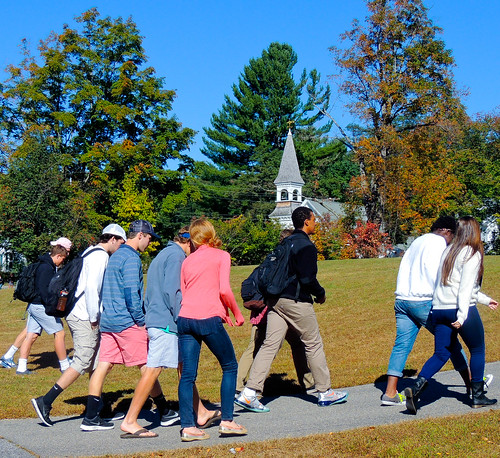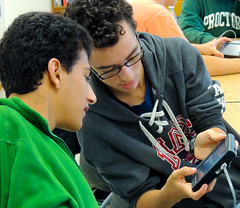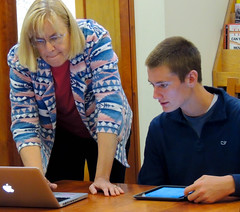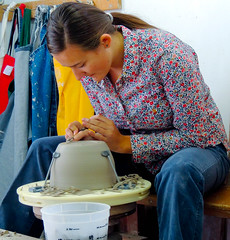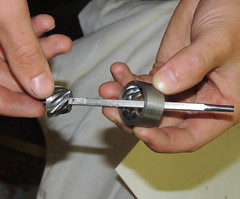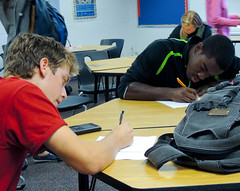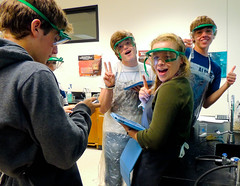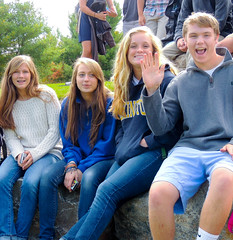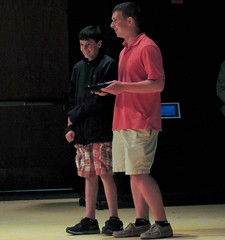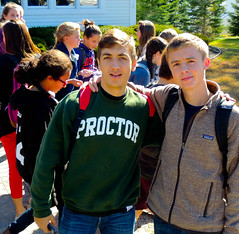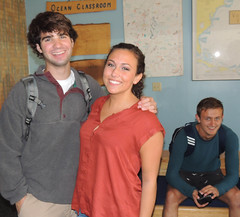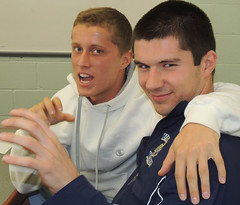If I were to tell you that "Academic Department Heads will be working together, and in their departments, to advance our understanding of 'experiential education'
in the belief that this has been, and will be, the best approach to produce informed and competent students who match the ‘Profile of a Graduate’" you might think I was joking. Why would the prep school with the highest-evolved off-campus experiential programs dedicate time and energy to advancing the topic? Yet that is exactly what is happening.
Chris Edwards '83, P'16 forwarded photos of Ocean Classroom's Harvey Gamage at anchor in his home port of Fisher's Island, New York.
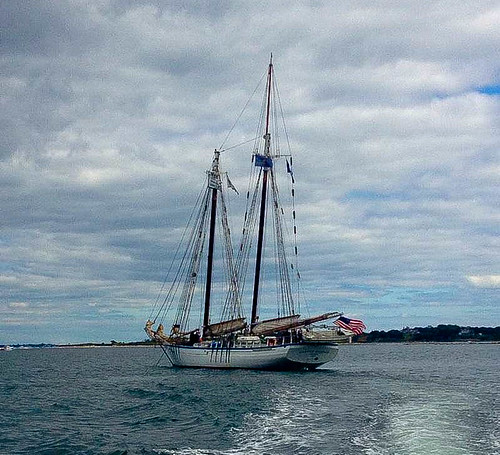
The answer begins with the acknowledgement that experiential education exists on a continuum at Proctor, and while we can take pride in flagship off-campus programs, as well as on-campus courses and activities that draw inspiration from those programs, we have to look at the entire continuum and ask how we can be more relevant, inspirational and exceptional.
Students in Spanish classes enjoyed extensive time interviewing members of the Nicaraguan Folkloric Dance Ensemble Wednesday.
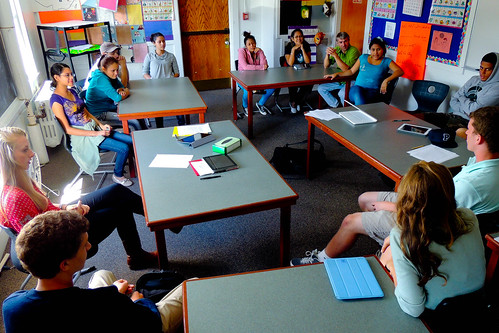
In a message announcing the initiative to faculty, Dean of Faculty Karl Methven repeatedly referenced a book that is a part of our history,
Schools of Hope, written by Douglas H. Heath who--at the time of its publication in 1994--was professor emeritus in psychology at Haverford College. Proctor was one of four schools profiled by Heath, following extensive time on campus observing, interviewing and surveying constituents. Karl notes, "
Heath argued against what was going on in too many high school classrooms across the country: 'Teachers assuming responsibility for students’ learning, using mind-crippling textbooks, assigning pages to read, talking 85% of the time, working hard to entertain their students, reviewing the textbook, directing students moment by moment, giving daily or weekly quizzes, providing science lab books to follow, and racing through lesson plans to complete the syllabus by the end of the semester.' He asked, 'do these pedagogical crutches really empower students to be self-teachers?'"
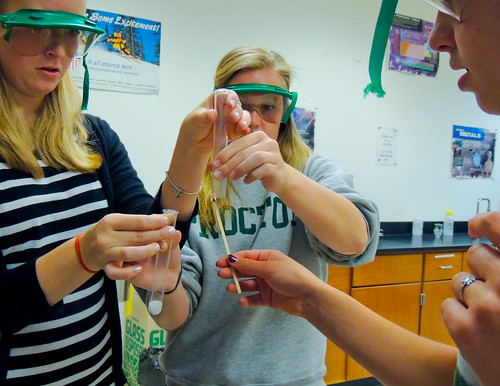
Karl quotes Heath: "
a single-minded emphasis on academic excellence obscures to students the centrality of their character to their future success.” He states that, “academic grades did not predict who would and who would not fulfill their adult roles (as citizen, breadwinner, partner and parent) successfully...High grades predicted neither vocational fulfillment or income, virtue, physical or mental health, nor happiness.”
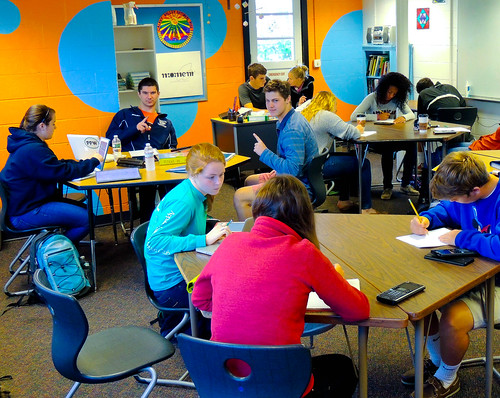 According to Heath, the secret to Proctor’s success is, “that it values the maturation of character and self as highly as the maturation of the mind....The keys,” Heath said, “were its close, family-like faculty-student relationships and its activity-based experiential activities, which offered its students ways to discover strengths not usually educed in traditional didactic classrooms."
According to Heath, the secret to Proctor’s success is, “that it values the maturation of character and self as highly as the maturation of the mind....The keys,” Heath said, “were its close, family-like faculty-student relationships and its activity-based experiential activities, which offered its students ways to discover strengths not usually educed in traditional didactic classrooms."
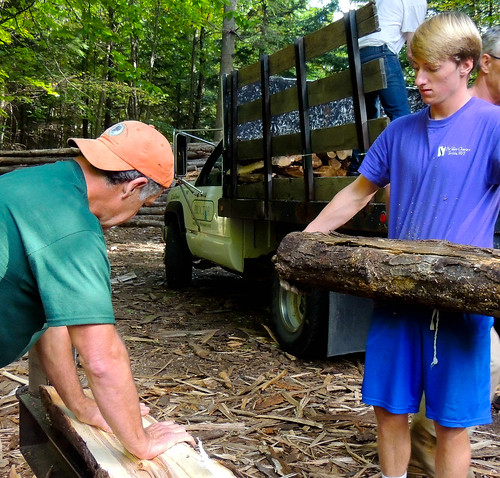
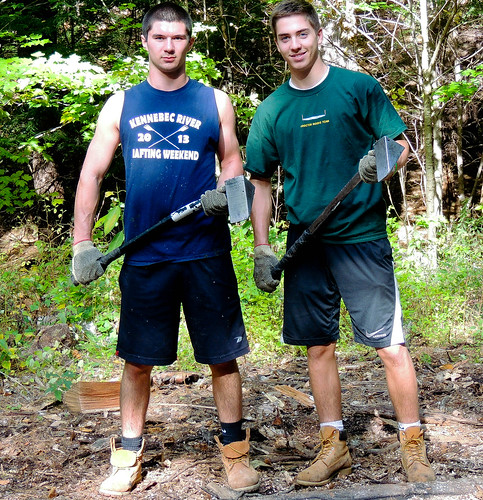
Below, chemistry meets United States history.
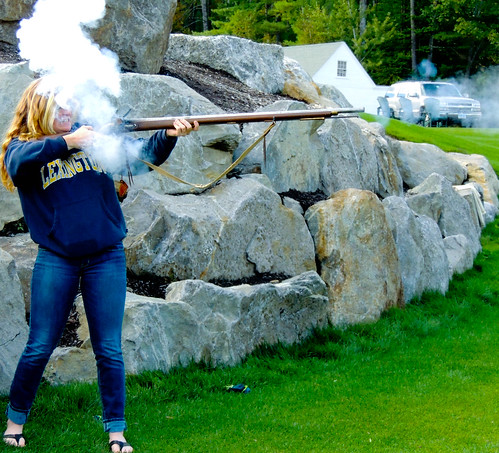
Commenting on Proctor, Doug Heath wrote, "No other school of which I am aware has so honestly and courageously explored itself so thoroughly. No question was turned away; no resource was withheld...." And so now we look to continue that self-exploration and transparency.
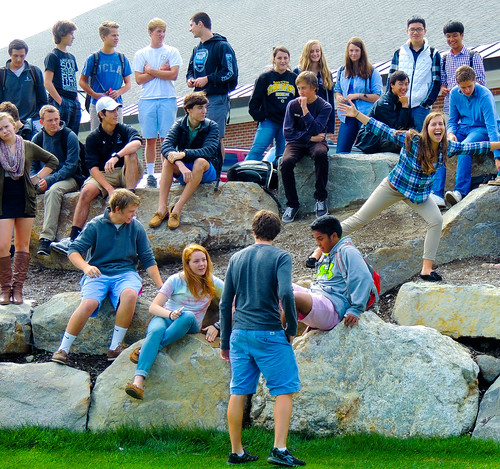
Proctor "students themselves were a resource. They viewed their caring and devoted faculty as their family and so felt emotionally identified with the school and its aims."
